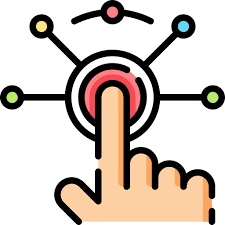If you’ve been wondering what a digital analyst does, you’re not alone. Whether you’re a recent college grad or a seasoned professional, you’re bound to have a lot of questions about this career. Read on to learn more about the role of a digital analyst, the average salary, and the qualifications for a job as one.
Table of Contents
Explaining the job of a digital analyst
A digital analyst is a professional who uses data and analytics to understand and improve the performance of digital marketing and online business initiatives. Digital analysts may work in a variety of industries and organizations, including e-commerce, media, advertising, and consulting.
Some specific tasks that a digital analyst might perform include:
- Collecting and analyzing data from online platforms, such as websites, mobile apps, and social media, to understand user behavior and identify trends and patterns.
- Developing and implementing tracking and measurement systems to capture data about online marketing campaigns and business performance.
- Using data visualization tools and software to create reports and dashboards that highlight key performance metrics and insights.
- Collaborating with marketing and business teams to identify areas for improvement and develop strategies to optimize digital performance.
- Providing recommendations and guidance to teams on how to use data to drive business decisions and improve performance.
Overall, a digital analyst plays a key role in helping organizations understand and improve their digital performance through data-driven insights and recommendations.
Examples of responsibilities from real digital analyst resumes
If you are looking to apply for a digital analyst position, you need to understand the job description before you start writing your resume. Your goal is to showcase your knowledge and experience in a manner that is clear and concise. This will help you land the interview. It also makes you look like a qualified candidate.
The most obvious part of your digital analyst resume is your work experience section. It is where you showcase your most important achievements. However, you do not want to overdo it. You should only include the stuff that demonstrates your superior skills and capabilities.
A good way to go about it is to use the STAR method. In this method, you select and display the best three or four accomplishments. This helps you see how you stack up against the competition. To make it more effective, you can highlight the most impressive ones with a well-placed, high-quality pic.
While you are at it, you should also try to come up with a few notable achievements that you can brag about on your next digital analyst interview. For example, you can show off your digital marketing expertise by presenting research on the latest trends and best practices to your boss. Or, you can demonstrate your passion for digital marketing by incorporating your hobbies into your resume.
A digital analyst job requires you to hone the art of interpreting data in order to come up with actionable suggestions that will improve the bottom line. Luckily, you don’t have to be a seasoned accountant to get the job. As long as you have the right combination of traits, you can be on your way to a rewarding new career. Just remember to keep in mind that you must be able to communicate your findings to other employees and clients. Otherwise, your efforts will have been wasted.
As with any other profession, you need to make sure your digital analyst resume stands out from the crowd. Here are some tips to help you do just that. And don’t forget to check out our sample digital analyst resume.
Qualifications for a career as a digital analyst
As the name implies, Digital Analysts work on a range of digital marketing initiatives. They gather data and analyze it to give insights to marketing managers. The skills they need include a keen eye for analyzing information, strong technical skills, and a good understanding of social media and search engine marketing.
In addition to working on digital campaign strategies, a Digital Analyst will also use Google Analytics and RJ Metrics to monitor the performance of a website or an online campaign. They will also create dashboards and presentations.
While there is no set qualification list for Digital Analysts, most employers prefer candidates who have a bachelor’s degree in marketing or math. They may also require certifications.
Some companies may require that applicants have a master’s degree in business analytics. These degrees can take one to two years to complete.
Most Digital Analysts are self-employed. This means they can work for a variety of businesses, including marketing firms, advertising agencies, technology and retail companies. They can work on a contract basis or on a full-time basis.
A Digital Analyst’s duties vary depending on the size of the company they work for. Larger companies usually have more analysts on staff. Smaller companies may have a single Analyst.
A successful Digital Analyst resume will demonstrate their knowledge of multiple analytics tools, including Tableau, which can be used to build dashboards and presentations. Their ability to present findings in a clear and concise way is also essential.
An excellent Digital Analyst will be proficient in Excel. They will also need to be adept at calculating percentages and ratios. Good communication skills will help them to interact with their clients.
Other skills that are necessary for this job are SEO, SMM, and keyword research. Digital Analysts are also expected to use a number of intelligence tools, such as RJ Metrics, Data Studio, and Tableau.
A Digital Analyst can be self-employed or work for a marketing firm. Regardless of where they work, they will need to be able to communicate clearly with their clients.
Digital Analysts are tasked with providing an optimal digital experience to their clients. They conduct analysis and make reports to determine which web properties and online campaigns are performing the best.
Salary of a digital analyst
Digital Analysts are responsible for collecting and analyzing information about the digital assets of a company. They work with various stakeholders and rely on data to deliver creative and actionable analytics solutions.
Generally, Digital Analysts earn a salary of between $59,000 and $94,000. The range is largely dependent on the industry in which they work. It can also be determined by the years of experience they have. A digital analyst with a master’s degree and management experience may have a higher salary.
There are many job options for Digital Analysts. They can work in technology, retail or marketing firms. In addition, Digital Analysts can be self-employed contractors or full-time in-office employees. Their duties include analyzing the digital assets of an organization and developing automated reporting.
Digital Analysts typically hold a bachelor’s degree in business or finance. They will need to demonstrate strong skills in mathematics and statistics. Additionally, they must be able to translate their analyses into people-friendly terms.
Most Digital Analysts are employed on a contract basis. They can expect to have an average of 36 hours of work per week. However, they can expect to receive professional development opportunities.
Applicants should do their homework to learn more about the companies they are considering. For example, they should research the team members who will be involved with their job. By doing so, they will gain perspective on the position and get an idea of how it will fit into their current skills.
The median income for an entry-level Digital Analyst is $52,388. This salary is slightly above the national average. Depending on the size of the company, a mid-level Digital Analyst can earn $83,493 and a senior-level Digital Analyst can earn $144,896.
If you are interested in a career in Digital Analytics, you should consider taking a course to prepare for the profession. These courses will cover math, economics, and computer science. Some colleges will even require a short exam to qualify.
Before applying for a Digital Analyst position, it is important to understand the role and the company. Getting hired for a role will depend on your abilities and the company’s reputation.
Difference between a digital analyst and a marketing intern
A Digital Analyst is a person who analyzes data, such as the market or consumers. They can work for a marketing firm or a technology company. These professionals usually use a project management tool or CRM software to make their reports. In addition, they should be able to translate their findings into easy-to-understand terms.
Most Digital Analysts work on a contract basis. Some work full-time and others are self-employed contractors. To work as a Digital Analyst, you should be proficient in Google Analytics, Power BI, and Tableau. You should also be prepared to present your findings to a group of people in a professional way.
For those looking to start as a Digital Analyst, a college degree is the most common. However, some employers prefer candidates who have a background in math or business. Depending on the size of the company, the duties of a Digital Analyst vary.
If you are interested in becoming a digital analyst, you can start by creating a resume. This will show off your skills and experience. Then, you can begin searching for a job. Be sure to research the company, its team members, and open positions.
Many companies hire Digital Analysts as part of their marketing teams. They often coordinate with other marketing personnel to create a more effective campaign strategy.
The Digital Analyst’s job is to analyze data from different tools and tools like social media and online advertising. They are then able to identify new sales opportunities for the organization. It is important that they keep records of their activities and report their findings in a timely manner.
Compared to a Marketing Intern, a Digital Analyst has a higher salary. Although they may have less education than a Marketing Intern, they do have a greater potential for advancement.
Digital Analysts and Marketing Interns have similar skills, but there are some key differences. While a Digital Analyst works with quantitative data, a Marketing Intern focuses on consumer insights and trends. Both analysts focus on providing insight to clients and analyzing data to improve a company’s bottom line.

